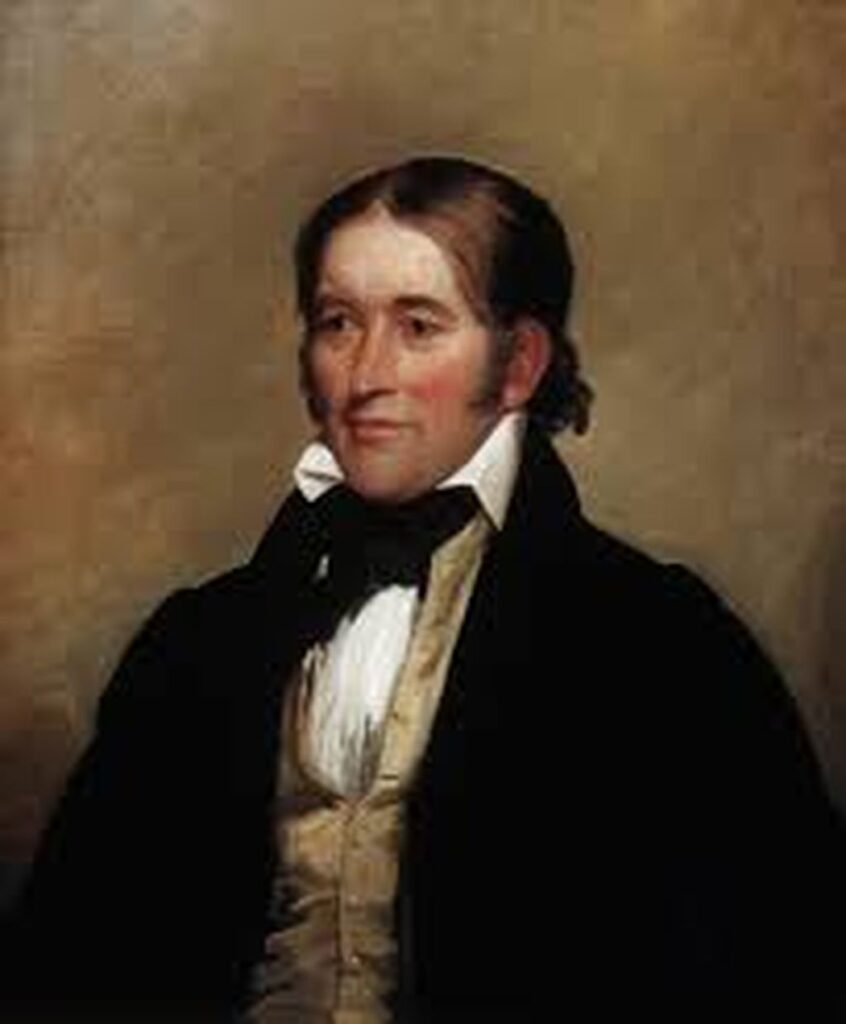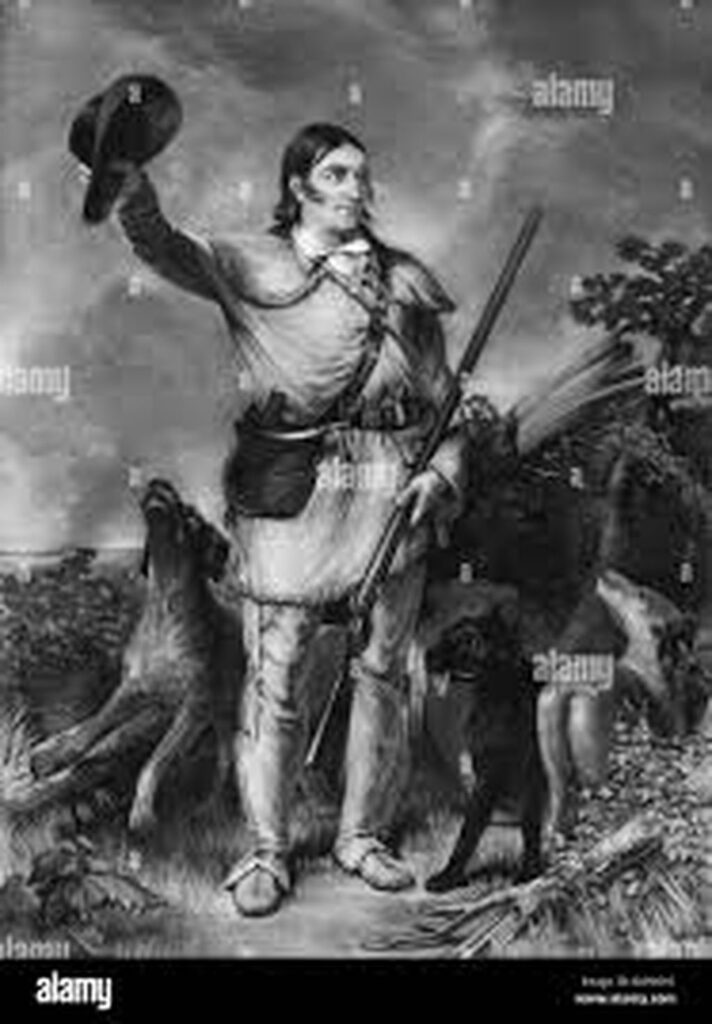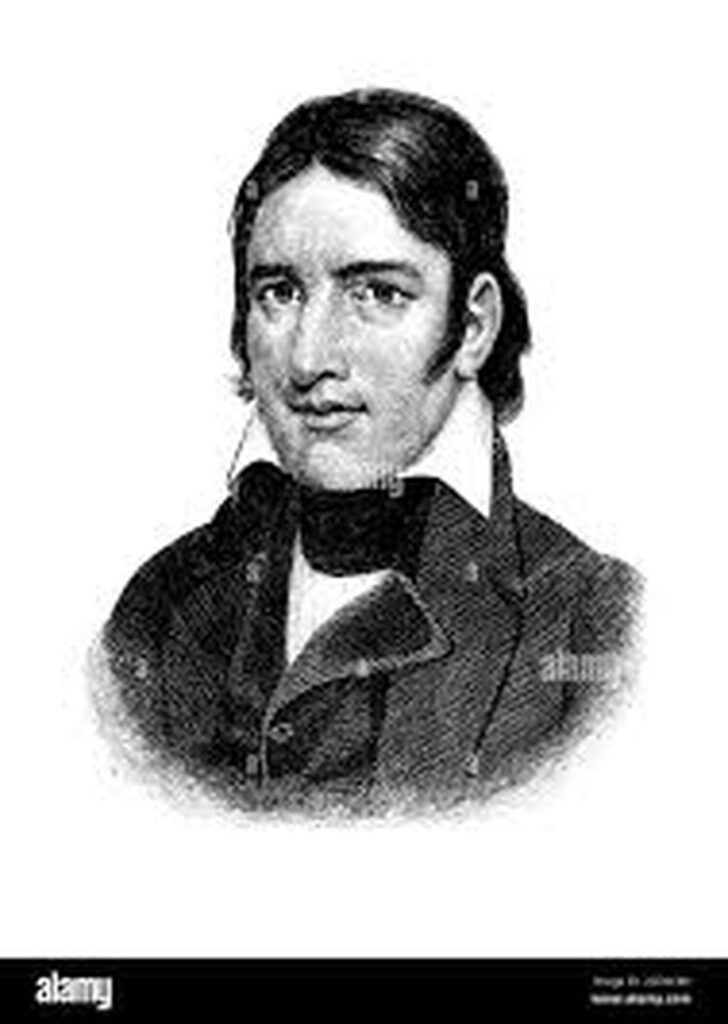Davy Crockett: The Alamo Hero and American Icon

Early Life and Frontier Beginnings

David “Davy” Crockett was born on August 17, 1786, in a small cabin on the western frontier of Tennessee. Raised in a struggling farming family, Crockett’s early life was marked by hardship and survival in the harsh, often unforgiving wilderness. By the time he was twelve, Crockett was already working on his own, assisting with hunting, and helping his family make ends meet. These early experiences taught him the skills of a frontiersman—hunting, tracking, and navigating dense forests—which would define his character and later become legendary.
Crockett’s education was limited; however, he quickly learned the realities of frontier life, gaining resilience and a sense of independence that would influence his future endeavors. As a young man, he joined a local militia and fought in the Creek War of 1813-1814 under the command of Andrew Jackson, showcasing his bravery and developing a reputation as a skilled marksman.
From Hunter to Politician: Davy Crockett’s Political Career

Crockett’s transition from rugged hunter to politician was unexpected yet marked by his popularity and natural leadership abilities. In 1821, he entered politics as a Tennessee legislator, where he was known for his straightforward, honest approach and his unyielding support for settlers’ rights. His advocacy for the common man and his mistrust of government power resonated with the people, and in 1827, he won a seat in the U.S. House of Representatives.
Political Clashes with Andrew Jackson
Crockett’s time in Congress was characterized by his opposition to President Andrew Jackson’s policies, particularly the Indian Removal Act of 1830, which forcibly relocated Native American tribes from their ancestral lands. Crockett, with his strong sense of fairness and justice, vehemently opposed the act, arguing it was unjust and inhumane. He became one of the few legislators who spoke out against Jackson’s policies, a stance that cost him politically but solidified his reputation as a man of principle.
After losing his congressional seat in 1835 due to this opposition, Crockett famously remarked, “You may all go to hell, and I will go to Texas.” This statement underscored his dissatisfaction with the direction the U.S. government was heading and hinted at the start of a new chapter in his life.
The Texas Revolution and the Battle of the Alamo
Driven by a desire for new opportunities and a fresh start, Crockett journeyed to Texas, which at the time was fighting for independence from Mexico. Upon arriving, he quickly joined the Texan forces in their struggle, eventually becoming part of the garrison at the Alamo, a fortified mission in San Antonio that served as a pivotal stronghold for the Texan army.
The Real Man Behind the Myth
In February 1836, General Antonio López de Santa Anna and a large Mexican force surrounded the Alamo, demanding surrender. Crockett, alongside a small group of defenders—including fellow leaders William B. Travis and James Bowie—stood firm, determined to resist the overwhelming Mexican army. For 13 days, Crockett and the other defenders held their ground, fighting fiercely despite being vastly outnumbered and outgunned.
On March 6, 1836, Mexican forces finally breached the Alamo’s defenses, and the ensuing battle saw the deaths of nearly all defenders, including Crockett. His courageous stand at the Alamo became a symbol of ultimate sacrifice for the cause of freedom and independence, and the rallying cry “Remember the Alamo!” would inspire future Texan victories, ultimately leading to Texas gaining independence from Mexico.
Davy Crockett: The Man, the Legend, and the Cultural Icon
The story of Davy Crockett did not end with his death at the Alamo. Instead, it marked the beginning of his transformation into a larger-than-life figure, a symbol of American ruggedness and bravery. In the years following the Alamo, Crockett’s legend grew as stories and accounts of his life spread across the country.
Popular Culture and the Legend of Davy Crockett
The 19th century saw numerous ballads, books, and stories written about Crockett, often exaggerating his feats and painting him as a mythical frontier hero. This image was further solidified in the 1950s with Disney’s wildly popular television series featuring Fess Parker as Crockett, reintroducing him to a new generation. Songs like “The Ballad of Davy Crockett” became instant hits, further cementing his place in American folklore.
The Real Man Behind the Myth
While many of the tales surrounding Crockett are embellished, he was indeed a remarkable man whose actions spoke of his bravery, integrity, and commitment to justice. Known for his wit and storytelling abilities, Crockett was also a skilled writer and used his talents to share his life experiences, allowing future generations a glimpse into the real man behind the myth.
Legacy and Influence on American Identity
Davy Crockett’s legacy endures as a symbol of courage, resilience, and individualism—the very traits that Americans hold dear. Across the United States, schools, parks, and streets bear his name, honoring his contributions to American history. He is remembered as a champion of the people, a fearless frontiersman, and a man who stood for justice even when it came at a personal cost.
Impact on Frontier Life and American Values
Crockett’s life reflects the spirit of early America, embodying the drive to explore, conquer, and thrive in harsh conditions. His resistance to government policies he deemed unjust, particularly in relation to Native Americans, underscores a legacy of standing up for what he believed was right. As a result, he has come to symbolize not just the American frontier, but the core values of justice and determination.





















